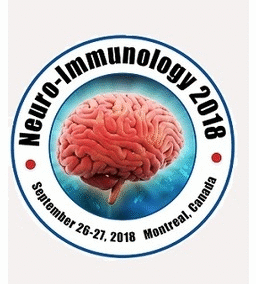International Conference on Neuroimmunology, Neurological disorders and Neurogenetics
Montreal, Canada

Biography
Biography: Mathieu Boule
Abstract
The objective of this session is to introduce to the attendees an analysis and intervention system for improved biomechanics via stimulation of the central nervous system. Our knowledge based on the postural system has increased dramatically in the last 25 years and it is in the context of clinical Posturology that it finds applications.
The attendee will gain appreciation for the very notion of the tonic postural system, as this system is the anti-gravity system and it is functionally adapting to both internal and external constraints.
Most appreciate the role of the vestibular system in the postural matter. In recent years, it has been shown that the feet and the eyes play a significant role in posture. How all of these sensory inputs contribute to stability and mobility will be discussed.
- Normal and pathogenic postures
- Normal and pathological stance: effects
- Normal stance
- More than 90% of people present a postural imbalance
- Strain-based pathologies or various manifestations of postural disorders
- Indications for Posturology
- The tonic postural system
- The double fractal pendulum
- The main sensors
- The main computer
- The sensors: podal, ocular, dental-occlusal
- Podal: the foot as a sensor, the interview and examination, correlations
- Ocular: various etiologies, clinical signs, correlations
- Dental-occlusal: the manducation system, clinical signs
- Obstacles: surgical scars
- Pathological scarring
- Physiopathology: postural dysregulation and metabolic dysregulation
- Can a morphostatic asymmetry create pain in the locomotor system?
- Review of an experimentation presented at the 10th SIRER congress in Lyon (2005).
- Case studies: where neuromechanics meets systemic
- Descriptions of specific cases where measurements on force plate and iheart monitor are discussed.

